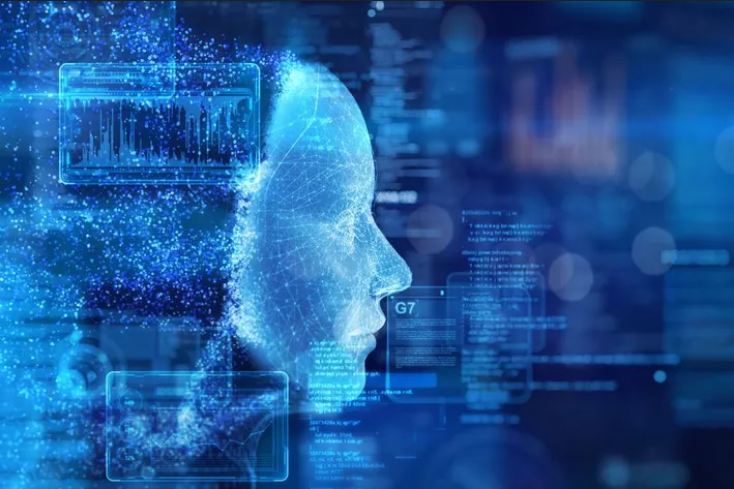What is Artificial Intelligence ?
Artificial Intelligence (AI) has emerged as one of the most transformative technologies of the 21st century, revolutionizing various industries and aspects of our daily lives. From powering virtual assistants like Siri and Alexa to enabling self-driving cars and predicting financial markets, AI’s impact is profound and pervasive. In this article, we delve into the concept of AI, its history, applications, and future prospects. Artificial Intelligence refers to the simulation of human intelligence in machines that are programmed to mimic human cognitive functions such as learning, problem-solving, perception, and decision-making. The goal of AI is to create systems that can perform tasks that typically require human intelligence.
Types of Artificial Intelligence :
- Narrow AI (Weak AI): Narrow AI is designed to perform a specific task or a narrow range of tasks. Examples include virtual assistants, image recognition software, and recommendation systems.
- General AI (Strong AI): General AI, also known as strong AI, refers to machines with the ability to understand, learn, and apply intelligence across a wide range of tasks, similar to human intelligence. General AI remains a theoretical concept and is yet to be achieved.
- Artificial Superintelligence: Artificial Superintelligence (ASI) surpasses human intelligence in every aspect and has the potential to outperform humans in virtually all domains, including scientific research, creativity, and problem-solving. ASI remains speculative and raises ethical and existential concerns.
History of Artificial Intelligence:
The concept of AI dates back to ancient times, with mythological tales of artificial beings imbued with human-like intelligence. However, the modern era of AI began in the 1950s with the development of the Turing Test by Alan Turing, which proposed a criterion for determining a machine’s ability to exhibit intelligent behavior.
Key milestones in the history of AI include the creation of the first artificial neural network in 1956, the development of expert systems in the 1970s and 1980s, and the emergence of machine learning algorithms such as deep learning in recent decades.
Where Artificial Intelligence can be used ? Or Applied ? :
AI has diverse applications across various sectors, including but not limited to:
- Healthcare: AI is used for disease diagnosis, drug discovery, personalized medicine, and medical imaging analysis, improving patient outcomes and streamlining healthcare delivery.
- Finance: In the financial industry, AI powers algorithmic trading, fraud detection, credit scoring, and risk assessment, enabling more accurate predictions and informed decision-making.
- Transportation: Self-driving cars, powered by AI algorithms, have the potential to revolutionize transportation by improving road safety, reducing congestion, and enhancing mobility for individuals with disabilities.
- Marketing and Advertising: AI-driven marketing platforms utilize machine learning algorithms to analyze consumer behavior, personalize content, and optimize advertising campaigns for better targeting and engagement.
- Education: AI-based educational tools offer personalized learning experiences, adaptive tutoring, and automated grading, catering to individual student needs and enhancing learning outcomes.
Future Prospects of Artificial Intelligence:
The future of AI holds tremendous potential for further advancements and innovations. Key areas of focus include:
- Ethical and Societal Implications: As AI technologies continue to evolve, addressing ethical concerns such as bias, privacy, and job displacement becomes imperative to ensure responsible and equitable deployment.
- Human-AI Collaboration: The augmentation of human capabilities through AI, known as Human-AI collaboration, holds promise for enhancing productivity, creativity, and problem-solving across various domains.
- Autonomous Systems: The development of autonomous systems capable of operating independently in complex and dynamic environments, such as autonomous vehicles and drones, remains a significant research area.
- Artificial General Intelligence: Achieving Artificial General Intelligence (AGI) remains a long-term goal, with the potential to revolutionize society by creating machines capable of reasoning, learning, and adapting to new situations autonomously.
Conclusion: Artificial Intelligence is a transformative technology that continues to reshape the way we live, work, and interact with the world around us. With its vast potential and capabilities, AI holds the promise of solving some of the most pressing challenges facing humanity while also posing ethical and societal dilemmas that require careful consideration. As we navigate the complexities of AI development and deployment, it is essential to prioritize ethical principles, collaboration, and responsible innovation to harness the full benefits of this remarkable technology.

